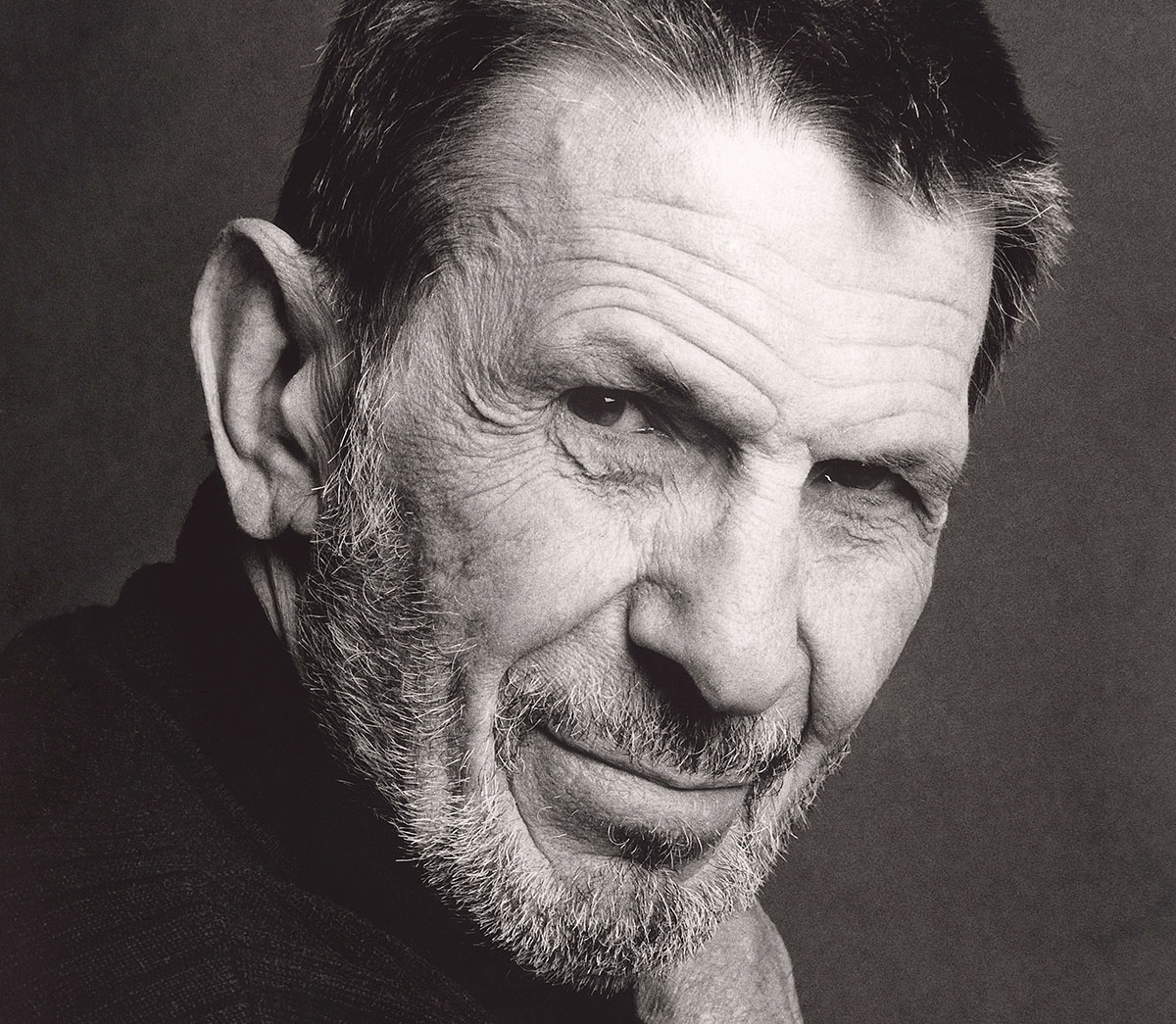Q&A: Leonard Nimoy

Photograph by Lillian Elaine Wilson/ Contour by Getty Images
Are you nervous at all about your photo show’s opening?
No, I’m excited. A lot of people are coming from California. My family’s coming. It’s like a major event.
Are you going to charter a plane in?
I wish. I have considered it. But we’re not doing that, no. Too many people are coming in from too many directions at different times.
Well, it will be good for North Adams’s economy.
That’s true.
Back to Boston. Does it pain you that your old West End neighborhood doesn’t exist any more?
Very painful, yeah. Who was it, Thomas Wolfe, who said, “You can’t go home again”? Well, in the case of the West End, he really meant it, you know? It’s gone. It’s gone. I’ve been back there looking for my street, and the only way that I can identify anywhere near where I lived is by the St. Joseph Church, which still exists. We could see that church out the window of my apartment. I can get a rough idea of where we lived, but it’s all gone. The geography has totally changed.
Well, you know, the old jail on Charles Street is now a fancy boutique hotel.
Is that a fact? The Charles Street Jail is a hotel?
One of the fanciest in town.
Really? When did that happen?
A few years ago.
What’s it called?
The Liberty.
It’s called the Liberty? That’s funny.
They have a bar called Alibi.
That’s funny. Wow. My brother and I used to sell newspapers on Beacon Hill.
How did growing up in Boston affect your career?
Well, Boston was a great city to grow up in, and it probably still is. We were surrounded by two very important elements: academia and the arts. I was surrounded by theater, music, dance, museums. And I learned how to sail on the Charles River. So I had a great childhood in Boston. It was wonderful.
I saw that you officially retired from acting in April, hung up the ears. Why?
Well, I actually quit acting and directing about 12 or 14 years ago, and began concentrating on my photography then. But I came back to do the Star Trek movie that was released last year because the director, J. J. Abrams, explained his concept for the movie and for the use of the Spock character, and I thought, for the first time, that I could really be intrigued with the story he wanted to tell, that it really did go back to the kind of Star Trek experience that I enjoyed when we were making the original series and the films that I was involved with.
You weren’t a big Deep Space Nine guy, then?
Frankly, it had nothing to do with what I knew about Star Trek. I mean, look, with all due respect, a lot of these people worked very hard and did good work — it just wasn’t the Star Trek that I had a relationship with.
Do you still go to conventions?
Occasionally, yeah.
If I may ask, what’s the wildest thing that has happened to you at a convention?
Did you know I went to Vulcan a few months ago?
That would be pretty nutty. How did you get there?
There’s a town in Alberta, Canada, and it’s called Vulcan.
No kidding.
Would I kid you, a guy from Boston? No. It’s called Vulcan, and it was named Vulcan around 1915, by somebody who was interested in mythology, and they have a Star Trek center there. About a year and a half ago, I heard that the town had been asking Paramount for an opportunity to show a premiere of the Star Trek movie. And they finally got word that they weren’t going to get the movie — maybe because there’s no movie theater in Vulcan. We arranged for 300 people, drawn by lottery, to be bussed from Vulcan to Calgary for a screening, and then back. It’s a kick. The place really is Vulcan. They have a Vulcan bakery, a Vulcan bank, a Vulcan mortuary, and a Vulcan restaurant. You know, it’s all Vulcan.
When you say that, do you mean all the stores have the pointy ears?
No, I’m not doing any jokes here. I’m not doing any jokes about ridiculous, silly stuff. I mean, if you were in Newton and you had a Newton bank and a Newton bakery, this is what they have in Vulcan. So it’s a kick to see everything named Vulcan. It has nothing to do with jokes. It’s serious. It’s real.
Okay, before I go, can I make a fan request? I know you speak Yiddish, so can you please say “Live long and prosper” in Yiddish? All the Trekkies in Brookline will plotz.
Oh, my. The simplest would be to say, “Languh yoren osta lebn.” It’s a typical Yiddish expression. Parents say it to their kids. It means, “You should live many years.”
Can you say that again?
No! Once was enough.